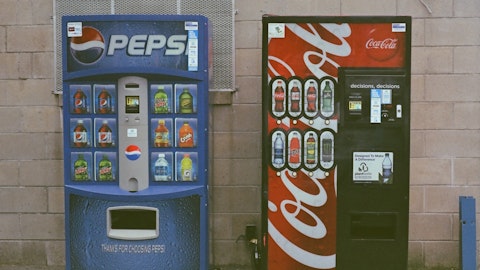Eric Bolton: Well, Rich, this is Eric. Let me try to answer that. I think that at the ground level, I would say that we’re not really seeing anything at this point that causes us to believe that we’re looking at a much weaker demand environment over the coming year. I mean as I touched on earlier, I mean we’re still seeing no evidence of distress with our vendor base. Our rent-to-income ratios remain very stable relative to where they have been. Collections performance has been very strong. We’re not seeing any behavioral changes with roommating, things of that nature. We’re not in the trends to migrate €“ migration trends continue to be quite positive. Move outs to non-MAA markets and our move outs out of the Sunbelt continue to be quite low.
So I think more than anything for us, we’re just trying to keep an eye on the broader economy and the broader employment markets and any evidence that the employers are really starting to get aggressive at downscaling and downsizing their staffing. And we’ve not seen that yet, but that would be obviously a cause for concern. But at a macro level, move-outs to home buying continues to be quite low, and there’s no evidence mounting that that’s starting to change and move outs due to the people not wanting to pay their rent increase that we’re asking for, still is our third biggest reason. But we’re still having people come in after them when they do move out, willing to pay more than what we were asking the renewing resident to pay. So that’s a €“ that to me, is a fairly strong indicator that the market is still holding up quite well.
And so, I think we’re just €“ we’re moderating off of incredible highs and that’s what’s happening here. But in terms of any significant pullback in demand, we are just not seeing that at this point.
Richard Anderson: Okay. Fair enough. Second question is, just closing the loop on the supply conversation, what always happens is developers chasing 2022 growth by delivering product in 2024. Always a smart strategy. But I guess my question is, do you feel like the environment and interest rates and everything else, do you feel like sort of the private developer model is on shaker ground than normal this time around? And perhaps even more of an opportunity for you to step in at some point down the road? Or is it sort of a typical environment, different, obviously, variables, but a typical opportunity for you a year or two down the road?
Brad Hill: Rich, this is Brad. I definitely think in terms of new starts, they’re on much shaker ground, the privates are, for sure, in terms of getting financing. I would say that anything that is in lease-up right now. I mean there’s not distress in that market currently. So there’s not a lot of forced selling at the moment. Now there are still equity and capital folks that they want to cycle out of. As I mentioned earlier, our region is predominantly controlled or developed by merchant developers and they’re really €“ their model is built on developing an asset and selling it, taking the profit, moving on to the next deal and rinsing and repeating. I’d say that’s a little bit in flux right now with nothing selling and the inability to start new assets. I would say the private developer is a little bit more in flux right now because of those reasons.
Richard Anderson: Okay. Thanks very much.
Operator: We’ll take our next question from Wes Golladay with Baird. Please go ahead.





